
George Clooney
Also: EU presidency, Sri Lanka peace prospects, Italy, and the global economy.
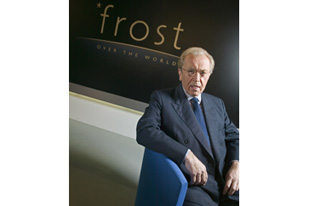 |
| Sir David Frost |
Every week, Sir David Frost, one of the most celebrated broadcasters, offers you a programme which takes its stories and guests from every part of the globe.
|
Coming up this week on Frost over the World: |
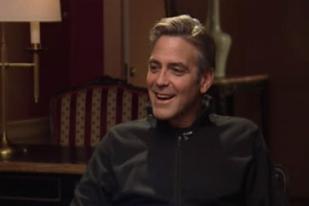 |
| George Clooney is nominated for best actor for his film Michael Clayton |
This week, the Oscar nominations were announced and George Clooney was confirmed as a superstar.
His latest film, Michael Clayton, received seven nominations, including best actor for Clooney.
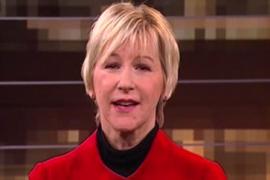 |
| Margot Wallstrom explains what the role of the full-time president of the EU will be |
The recently signed Lisbon Treaty represents an important stage in the development of the European Union.
It will, should the 27 member states ratify it, create a new full-time EU president who would serve for two and a half years.
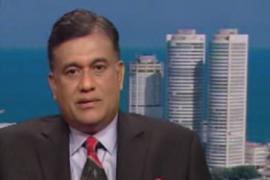 |
| Rohitha Bogollagama discusses peace prospects in Sri Lanka |
Hopes for a lasting settlement in Sri Lanka were raised when a ceasefire and a political agreement was reached between the government and the Tamil Tiger rebels in 2002.
Watch the inteviews with Margot Wallstrom and Rohitha Bogollagama on YouTube
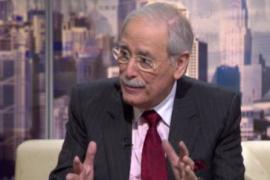 |
| Irwin Stelzer assesses global economy |
The world’s economic elite is currently in the Swiss ski-resort of Davos for the World Economic Forum and one subject is on everyone’s mind – the global economy.
This follows another week of turmoil on the world markets, with the US Federal Reserve making its biggest rate cut for 25 years.
Stelzer suggests that recession is unlikely but warns that the current economic slowdown may continue until 2009.
 |
| Martin Pickering sheds light on why some South American countries are locked in disputes |
They have always been seen as the more stable powers of the region, but no longer.
Last year a dispute between Bolivia and Chile over sea access, and a row between Argentina and Uruguay over some paper mills broke out.
For years, the sea border between the two countries has been assumed to be a horizontal line, but now Peru is suggesting that the sea border should be lowered to give Peru a bigger fishing area.
Watch the interviews with Irwin Stelzer and Martin Pickering on YouTube
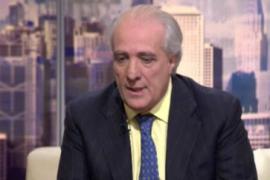 |
| Marco Niada talks us through Italy’s latest political crisis |
Following defeat in a vote of confidence in the senate, Romano Prodi, the Italian prime minister, has just stepped down.
Now Italy’s president is to hold crisis talks with political leaders to decide what will come next – electoral reform or snap elections.
Marco Niada, a journalist, talks to Sir David Frost about what the future holds for Italian politics and looks at why there have been so many governments.
Niada explains that the political system is fragmented and in desperate need of reform. He also talks of Italy’s perilous economic situation and its consequent vulnerability in the global economy.
Keith Vaz
 |
| The british MP says the UN Security Council needs to be reformed |
Tasked to ensure global peace and security the makeup of the Council has not been changed too much since its inception in the aftermath of World War II.
The Council is playing an increasingly active role on the global stage and as a result many are calling for reform. Critics accuse the body of being unrepresentative and undemocratic.
Keith Vaz, a British politician, talks to Sir David about the need to reform the Council and his support for India’s bid to become a permanent member, citing its size and increasing economic and political importance.
Vaz also calls for Africa and the Middle East to be given greater representation in the Council.
Watch the interviews with Marco Niada and Keith Vaz on YouTube
Frost Over The World aired at 18:00GMT every Friday on Al Jazeera English and is repeated during the week.